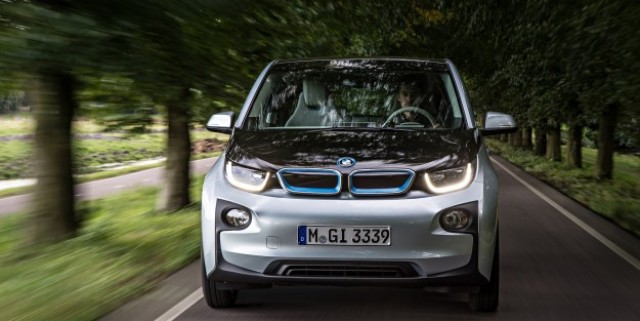
BMW believes half the buyers of its new i3 electric car will pay a premium for a range extending petrol engine option rather than rely on battery power alone.
The BMW i3, the first model from the German car maker’s new i brand devoted to sustainable motoring, has a range of about 160km from its lithium-ion battery. This can be almost doubled to about 300km with the two-cylinder bike engine that acts as a generator.
The range extender option – used as the standard set-up in the Holden Volt – costs 4500 Euros and is expected to cost up to $10,000 in Australia when the car goes on sale locally in the second half of 2014 potentially priced from about $60,000.
BMW Australia said it expected the same even split locally, though that’s less surprising considering our greater distances and the fact Europe has a healthy choice of fast-charging stations in a number of cities.
There are 97 in Amsterdam, for example, where BMW staged the i3’s international launch.
BMW believes a higher percentage of people would go for the standard i3 if they realised the vehicle’s range was more than sufficient for 95 per cent of driver’s needs.
“We expect half, half [for the sales split] – this is a guess,” BMW’s head of user interface, Dr Christian Knoll, told CarAdvice at the i3’s launch. “It will be strong dependence on how realistic our customers estimate their mobility needs. Because after five years of Mini E and [BMW] Active E tests and 32 million test kilometres under everyday conditions we are aware of the real mobility demands.
“The daily commuting distance varies globally between 35 and 45km, which means you average about 40km more or less.
“So the distance with this 160km this car offers you cover more than 95 per cent of all daily drives compared with car of comparable size like Mini, 1 Series or [VW] Golf.”
The range extender adds about 120kg to the weight of the i3, with the additional inclusion of a nine-litre fuel tank, and slows its 0-100km/h acceleration capability from 7.2 to 7.9 seconds.
BMW admits the i3 will not be a car for everyone but is doing all it can to alleviate ‘range anxiety’ – the name attached to the fear of running out of battery power and being left stranded.
Special lease plans available in Europe – but not in Australia when the i3 goes on sale – allows owners to arrange normal BMWs for particular occasions, such as holidays.
The BMW i3 also features a sim card and smartphone based connectivity that sees a BMW back end server constantly transmit calculations to the car to tell the driver crucial information.
The information can take into account real-time traffic and weather, time of the week, topography and driving style to assess whether you can reach the destination entered into the sat-nav with the battery charge available.
If the destination can’t be reached, the i3 driver is directed to the nearest charging station or parking area and is then provided with alternative transport solutions with real-time schedules for buses, trains, etc.





